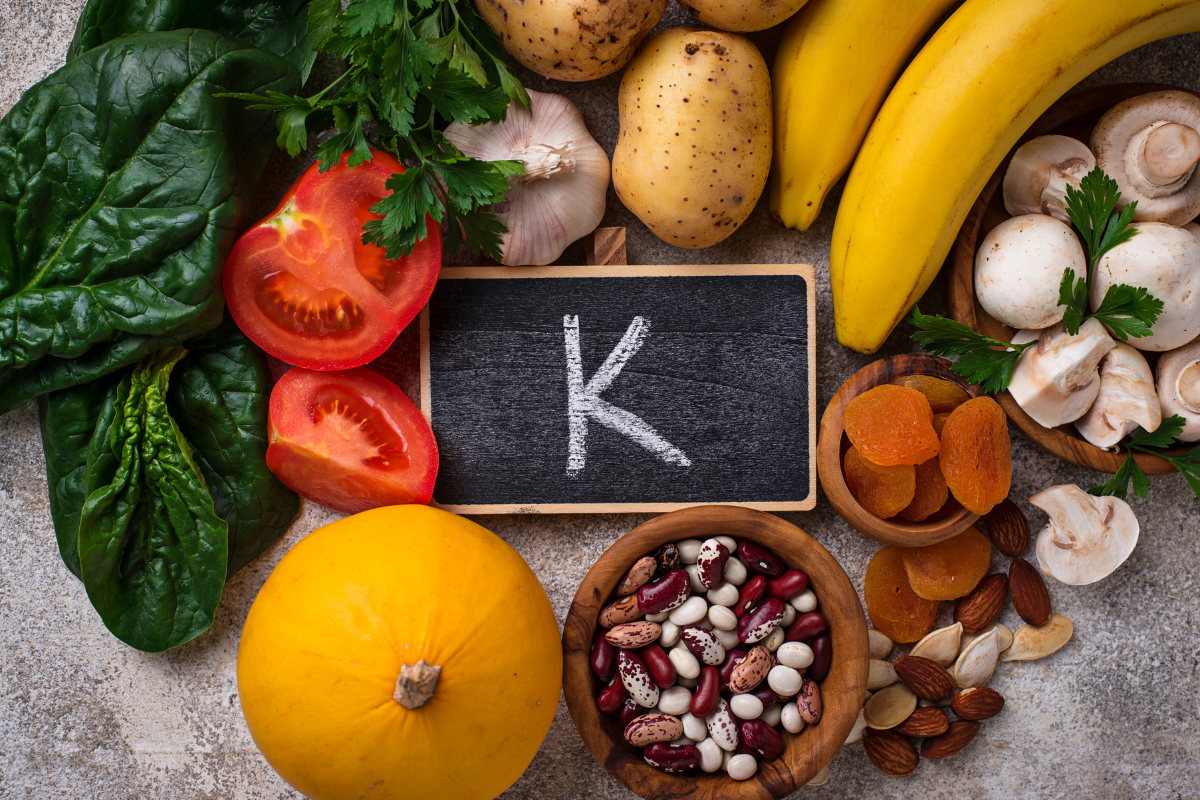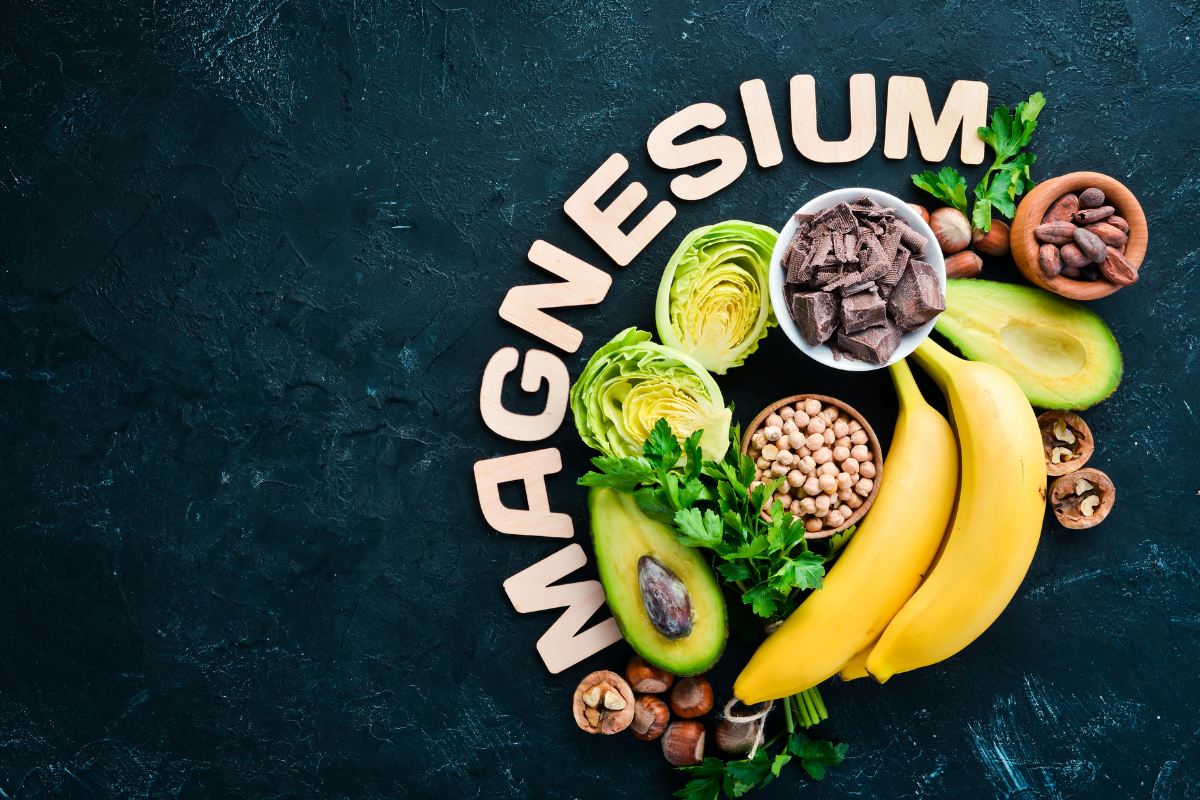Potassium & its effects in your body

Potassium & its effects in your body
The importance of the mineral potassium for the body is greatly underestimated. This mineral is classified as an electrolyte because it is highly reactive in water. When dissolved in water, it produces positively charged ions. This special property makes it possible to conduct an electrical charge, which is important for many processes throughout the body.
Interestingly, a potassium-rich diet is linked to many powerful health benefits. It can help reduce blood pressure and water retention, protect against stroke and prevent osteoporosis and kidney stones.
This article provides a detailed review of potassium and what this important mineral does for your health.
What is potassium?
Potassium is the third most abundant mineral in the body. It helps the body regulate fluid, send nerve signals and regulate muscle contractions. About 98% of the potassium in your body is in your cells. Of these, 80% are found in your muscle cells, while the other 20% are found in your bones, liver and red blood cells. Once inside the body, potassium acts as an electrolyte.
When an electrolyte is in water, it dissolves into positive or negative ions that have the ability to conduct an electrical charge. Potassium ions carry a positive charge. Your body uses this electrical charge to manage a variety of processes, including fluid balance, nerve signals, and muscle contractions. Therefore, a low or high amount of electrolytes in the body can affect many important functions.
Why is potassium important for fluid balance in the body?
The body is made of about 60% water. 40% of this water is found in your cells in a fluid called intracellular fluid (ICV). This liquid is negatively charged. The rest is found outside your cells in areas such as blood, spinal fluid and between cells. This fluid is called extracellular fluid (ECV). This liquid is positively charged. ICV contains a lot of potassium ions and ECV contains more sodium ions and calcium ions than what is inside the cell.
Interestingly, the amount of water in the ICV and ECV is affected by their concentration of electrolytes, especially potassium and sodium. Potassium and sodium have a working relationship in the body to maintain the correct electrical charge between the inside and outside of the cell. Nerve cells contain a lot of potassium, and without this charge, the activity of nerve cells does not work, nor does the work of muscles (including the heart). The balance between sodium and potassium is maintained via the so-called sodium-potassium pump, a system found in all cell membranes. Through it, potassium is pumped into the cells while sodium is pumped out. The flow of potassium into the cell is promoted by magnesium and insulin.
Potassium is the main electrolyte in the ICV, and it determines the amount of water inside the cells. Conversely, sodium is the main electrolyte in the ECV and it determines the amount of water outside the cells. The number of electrolytes in relation to the amount of fluid is called osmolality. Under normal conditions, osmolality is the same inside and outside your cells. Simply put, there is an even balance of electrolytes outside and inside your cells. However, when the osmolality is unequal, water from the side with fewer electrolytes will move into the side with more electrolytes to equalize the electrolyte concentrations. This can cause cells to shrink as water moves out of them, or swell and burst as water moves into them. That's why it's important to consume the right electrolytes, including potassium.
Maintaining good fluid balance is important for optimal health. Poor fluid balance can lead to dehydration, which in turn affects the heart and kidneys.
Eating a potassium-rich diet and staying hydrated can help maintain good fluid balance.
Why is potassium important for the nervous system?
The nervous system relays messages between your brain and your body. These messages are delivered in the form of nerve impulses and help regulate your muscle contractions, heartbeat, reflexes and many other bodily functions. Interestingly, nerve impulses are generated by sodium ions moving into the cells and potassium ions moving out of the cells. The movements of ions change the cell's voltage, which activates a nerve impulse. Unfortunately, a decrease in potassium levels in the blood can affect the body's ability to generate a nerve impulse. Getting enough potassium from your diet or from supplements can help maintain healthy nerve function.
Can potassium regulate muscle and heart contractions?
The nervous system helps regulate muscle contractions. However, altered potassium levels in the blood can affect nerve signals in the nervous system, weakening muscle contractions. Both low and high blood levels can affect nerve impulses by changing the voltage of nerve cells.
The mineral is also important for a healthy heart, as its movement in and out of cells helps maintain a regular heart rhythm. When blood levels of potassium are too high, the heart can become enlarged/dilated. This can weaken its contractions and cause abnormal heartbeats. Likewise, low levels in the blood can also alter heartbeats.
When the heart does not beat properly, it cannot pump blood efficiently to the brain, organs and muscles. In some cases, cardiac arrhythmia or irregular heartbeat can be fatal and lead to sudden death.
What are the health benefits of potassium?
Consuming a potassium-rich diet is linked to many impressive health benefits.
May help lower blood pressure
High blood pressure or hypertension affects a third of Sweden's adult population. It is a risk factor for heart disease, and the leading cause of death worldwide. A potassium-rich diet can lower blood pressure by helping the body remove excess sodium. High sodium levels can raise blood pressure, especially for people whose blood pressure is already high.
An analysis of 33 studies found that when people with high blood pressure increased their potassium intake, their systolic blood pressure decreased by 3.49 mmHg, while their diastolic blood pressure decreased by 1.96 mmHg.
In another study with 1,285 participants ages 25-64, researchers found that people who ate the most potassium had lower blood pressure compared to people who ate the least. Those who consumed the most had systolic blood pressure that was 6 mmHg lower and diastolic blood pressure that was 4 mmHg lower on average.
May help protect against stroke
A stroke occurs when there is a lack of blood flow to the brain. Several studies have shown that a potassium-rich diet can help prevent strokes.
In an analysis of 33 studies including 128,644 participants, researchers found that people who ate the most potassium had a 24% lower risk of stroke than people who ate the least.
Additionally, an analysis of 11 studies with 247,510 participants found that people who ate the most potassium had a 21% lower risk of stroke. They also found that a diet rich in this mineral was linked to a reduced risk of heart disease.
Potassium can help prevent osteoporosis (brittle bones)
Osteoporosis is a condition characterized by hollow and porous bones. It is often linked to low levels of calcium, an important mineral for bone health.
Interestingly, studies show that a potassium-rich diet can help prevent osteoporosis by reducing the amount of calcium the body loses through urine.
In a study of 62 healthy women ages 45–55, researchers found that those who ate the most potassium had the greatest total bone mass.
In another study of 994 healthy premenopausal women, researchers found that those who ate the most potassium had more bone mass in the lower back and hip bones.
Potassium can help prevent kidney stones
Kidney stones form inside the kidney when substances in the urine clump together. The stones can either remain in the kidney, or get stuck somewhere on the path between the kidney and the bladder. A kidney stone can be very painful, but usually eventually passes by itself. Kidney stones form when the concentration of certain substances in the urine is too high. Examples of such substances are calcium, oxalic acid and uric acid. Calcium is a common mineral in kidney stones, and several studies show that potassium citrate lowers calcium levels in the urine. In this way, potassium can help fight kidney stones.
Many fruits and vegetables contain potassium citrate, so it is easy to add these to the daily diet. In a 4-year study of 45,619 men, researchers found that those who consumed the most potassium daily had a 51% lower risk of kidney stones.
Similarly, in a 12-year study of 91,731 women, researchers found that those who consumed the most potassium daily had a 35% lower risk of kidney stones.
Potassium can reduce water retention
Water retention occurs when excess fluid builds up in the body. Historically, potassium has been used to treat water retention. Studies suggest that a high potassium intake can help reduce fluid retention by increasing urine production and reducing sodium levels.
Foods rich in potassium
Potassium is abundant in many foods, especially fruits, vegetables, fish and meat.
The Swedish Food Agency recommends 3.1 grams of potassium for women and girls over the age of 14 and 3.5 grams of potassium for men and boys over the age of 14.
Consequences of too much or too little potassium
Most of the population does not meet the recommendations for the daily intake of potassium. Low levels of potassium in the blood are called hypokalemia. You cannot feel yourself that you have a potassium deficiency. However, potassium deficiency can make you tired and have less energy, but it is much more common that these symptoms are due to something else.
However, a low potassium intake from the diet will rarely cause a deficiency. The most common reason for a low potassium value is that you are being treated with a certain type of medicine. This mainly concerns certain diuretic drugs. Other causes of low potassium levels may be that you have lost salts, for example if you have had severe diarrhea or vomiting. Kidney diseases can in some cases also give a low value, instead of a high value. You can also get low values if you eat a lot of licorice.
It is also unusual to get too much potassium. Although it can happen if you consume too much potassium from supplements, there is no strong evidence that healthy adults can get too much potassium from food. High levels of potassium in the blood are called hyperkalemia. A slightly elevated potassium value usually does not cause any problems. If the potassium value is greatly increased, you may feel nauseous, feel weak and the heart may beat irregularly.
Excess potassium in the blood usually occurs when the body cannot remove the mineral through the urine. Therefore, it most often affects people with poor kidney function or chronic kidney disease. Certain medicines can also raise the potassium level in the body. Even major damage to the body, such as large wounds or major muscle damage, can lead to high values as potassium leaks out of the damaged cells.
However, certain populations may need to limit their potassium intake, including those with chronic kidney disease, those taking blood pressure medication, and the elderly, as kidney function normally declines with age.
It's important to make sure you get enough potassium daily for optimal health. This is especially true for the elderly, as high blood pressure, stroke, kidney stones and osteoporosis are more common among the elderly.
Test your levels of potassium in the blood at Blodkollen
A potassium analysis is, among other things, important in investigations into kidney disease, high blood pressure and diabetes. Taking some medications also creates a need to have insight into the body's potassium metabolism, and above all medications for heart disease and high blood pressure.
The potassium level is usually checked together with sodium, which is potassium's opposite pole in the body's electrolyte balance.
Potassium can be measured both in plasma, which is what remains of the blood when all the cells have been removed without allowing the blood to clot, or in serum
Serum is what remains of the blood when all the cells have been removed after the blood has been allowed to clot.






